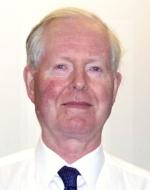Wilfred Brown`s Reflections on Employment Hierarchies in the Civil Service
Speaker A He does in his book, the second book about organization reflect on the hierarchies in the civil servants, as does Elliot As World in terms of military hierarchies and what was going on in te...
Transcript of the presentation video
NOTE: This transcript of the video was created by AI to enable Google's crawlers to search the video content. It may be expected to be only 96% accurate.
Speaker A He does in his book, the second book about organization reflect on the hierarchies in the civil servants, as does Elliot As World in terms of military hierarchies and what was going on in terms of those or not going on in terms of those organizations. I think he recognized that this was too big an institution for him to tackle in the short term. But I think that I think his general view was it was full of very capable people who, by and large were very badly deployed, and that the whole thing of ministerial accountability and the role of civil servants was not something that was a great clarification of and indeed, in terms of the last labor government and the use of special advisors and the deterioration of the civil service ethos is something which I think would have intrigued him, mightily in general, about what he was trying to he was extremely clear. If you asked him to lay down the reasons why he was seeking one particular course of action or another, why should we go to all this problem about having constitutions? Or why was it important to have a works council or whatever particular thing that he was promoting? He would have behind that, there would be a whole series of logical reasons why it was inescapable. If you took all these arguments together which were given facts, then the only sensible, logical conclusion was this outcome. This is what you had to do. You had to establish. And I think that in terms of the difficult relationships that civil servants have with other civil servants out in the other departments about what advice you gave ministers and were the responsibility of the ministers to act or not act on it, he gave precision and definition what it was so that they could more clearly understand what their role was. Not you couldn't tell a minister what to do or not to do, but what you could do is provide him with all the details and facts so that he can make a particular decision. And if he came to a decision which you felt was inappropriate, you could then say, minister, I don't think it's appropriate for these particular reasons. And I think, although I'm sure of his explicit about this, if those civil servants felt that the minister was going to go off because he was in a junior ministerial positions, to say, Minister, I feel so seriously about this particular that I've got to raise it with the Permanent Secretary of that particular department because it may be breaching government policy or whatever it happens to be. And the impression that one gets from all that is that it gave them a logical framework that they could understand how to act in very difficult situations. Given it's like anything, I think when you have a turbulent situation where it's very difficult to work on anything but experience, I'll do it this way because it worked last time. So I'll do it again until it doesn't work. As against. No. Why it worked on that case was because this and this and why it didn't work was because this, that and the other. And I think that getting someone to explain that I can quite see that it would be 1 minute it's all fog, the next minute it's clear. So I think that made a big impression. And obviously these are bright young people anyway and they came back and said that was the most inspiring period of their lives. In some of those cases. Never had the opportunity to work with somebody, I guess, with that level of intellect in terms of Episodes and his life. I was recounting, I think, to you about recollections of his time at the border trade as a Minister of State in charge of exports, talking to one of his private secretaries who had subsequently gone on to rise to quite senior positions within the civil service, talking about my father and the big debt that they owed him in terms of what they had learnt from working alongside him and how organizations work and how the civil service was used to being stuck on lucutory in terms of its communications. He gave an example where I think that I forget which other minister that he was dealing with but he'd written this minister, quite a straightforward and direct letter. One of his principal secretaries said that's very good, minister, I will put this in the language which is suitable to be sent and he said no, you won't. He said you'll send it as it is but minister, they remonstrated we couldn't possibly send this to another, it would cause offence. And he said well, it may cause offence, but I want the message to get crossed. Clearly Julie sent it cause eruptions but I think the civil servants recognized that unless the message is sometimes clear and direct, then they can miss the message entirely and there was great value in being absolutely honest about what he wanted to say.
Major organizations and consulting firms that provide Requisite Organization-based services





